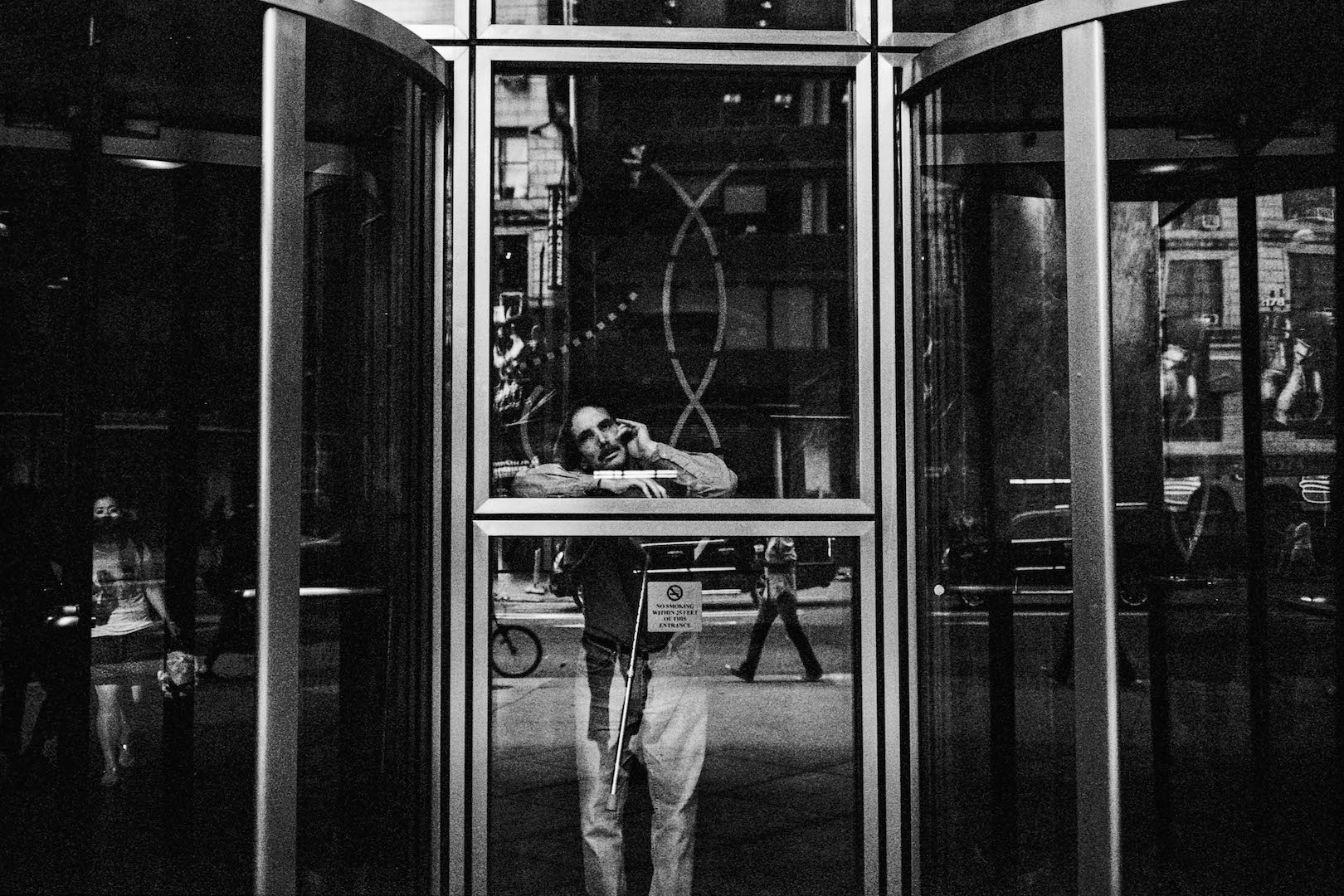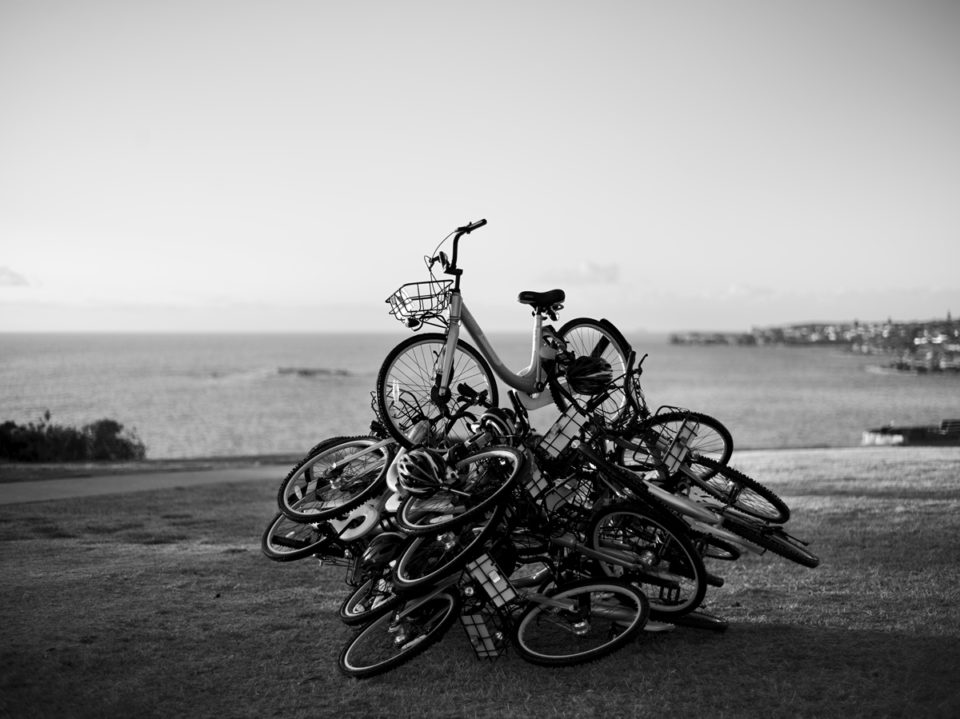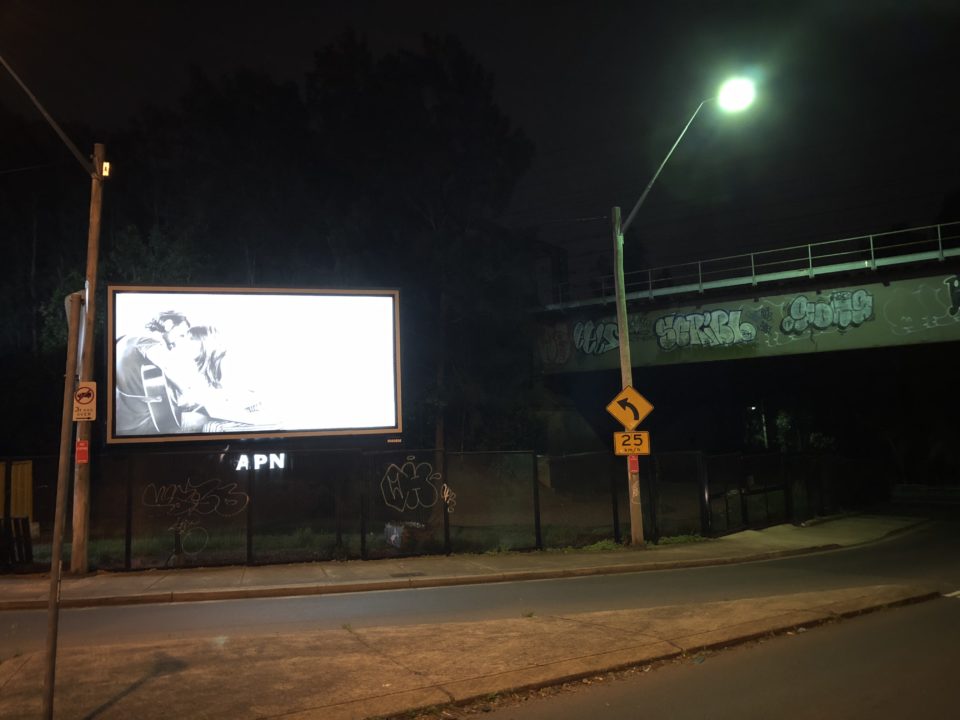Neighbours in our inner-Sydney apartment block are moving out – and in again – in droves. Giving up their own beds week after week to become hosts to streams of guests, many of them strangers.
These hosts are among the owners, or renters, of almost 16,000 Airbnb listings on offer in Sydney. Since 2008, they’ve turned our residential neighbourhoods into tourist zones. Bondi Beach and Sydney’s eastern suburbs are the two hottest Airbnb spots in NSW.
I recently joined Airbnb as a ‘guest’. Now I get regular emails from them as well as invitations to become a host.
I see my neighbours’ photographs online along with the wonderful feedback their hospitality in our building attracts. As I arrive home from work, I might see them greet their guests with blissful Airbnb smiles as they help wheel suitcases into our expensive-to-maintain, groovy-as-hell 1960 building before slipping off to their free or cheaper lodgings elsewhere and pocketing the difference. One host I know sleeps on her mother’s couch when her own place is booked.
It’s an awkward dance to watch as hosts and guests manoeuvre in this rediscovered liminal space between the personal and the professional – this commercialisation of what used to be called the private home. But there’s a good buck in it if you’re lucky enough to have your name on a title-deed or lease pretty much anywhere in pretty much any world city. That’s if you’re prepared to pack your personals and other obvious signs of your DNA into a weekend bag and you don’t mind strangers sleeping in your bed. Hosts must think a few mattress protectors and a bit of couch surfing are a small price to pay for earning $200 or more a night.
One Airbnb host in our building actually lives permanently elsewhere. Mostly his guests come and go with polite, ghostlike, anonymity and silence. A manager leads them in. Occasionally they ask for advice or help. We oblige. After they leave, cleaners bang around for about 20 minutes and the place stays empty until the next guests arrive.
Recently, though, we had a bad experience. Thick cigarette smoke drifted out into a common area. It stank. People came and went at different times of the day and night. Unusually, the blinds to the unit were drawn for a few days. We could see this from our balcony. You notice these things when you share common space and walls with others. For some of us, there is still an element of looking out for each other in suburbs with high crime rates as ours is.
I emailed (and texted) the host about the smoke and people traffic. When he didn’t respond promptly as he had at other times, I emailed our strata manager. Three days later the host, with whom we had always had cordial dealings, replied.
He said I must have been at my “peephole” 24 hours a day watching the comings and goings from his apartment.
Whether his guests drew the blinds or not was, he said, none of my business. Yes, he had a non-smoking policy. But that didn’t mean guests could not light up on the balcony once in awhile. I had made out his guest was a chain smoker, he said. He suggested we have the bottom gap of our door sealed if we were so sensitive. He liked to think we still lived in a democracy “not some eastern European gulag”.
But the best bit was a counter complaint from him about the cooking smells coming from our place. He wondered whether we should now ban cooking odours from the building out of respect for those who found them offensive.
He further told me he had passed on my emails to his guest and that I should be cautious in future about the tone of my correspondence.
Housing affordability is now at the top of the NSW Premier, Gladys Berejiklian’s to-fix list. Pressure is building to let Owners’ Corporations ban Airbnb-style short term letting, which many see as a major culprit in the city’s soaring rents and its loss of community. Airbnb is responding to what appears to be a global backlash to the home sharing economy. It’s piloting something called The Friendly Buildings Program offering financial and rules-based sweeteners to appease opponents.
It should soon be clearer what all that means for NSW Government recommendations released last year that would allow short term letting in residential homes. This is currently illegal, a fact that’s often ignored by hosts, and difficult for councils to enforce.
The independent member for the state seat of Sydney, Alex Greenwich says visitors in holiday mode can behave differently to full-time owner occupiers or renters. They may create noise and stress on common property, including in pools and gyms. Luggage on wheels and service trolleys also take their toll, says Greenwich, “… and the transience of visitors reduces the sense of security and community.” He’s in favour of letting Owners’ Corporations ban short term letting, or at least impose conditions.
Last year’s short-term letting inquiry got 212 submissions. The Real Estate Institute of NSW talked of the numerous frustrations felt by consumers, owners and communities.
Waverley Council, which covers Bondi Beach, cited January 2016 Airbnb data that said it had the highest concentrations of short term rentals in NSW: one listing per 11 private dwellings. The next highest is the City of Sydney: one listing for every 23 private dwellings.
But Airbnb’s December 2015 submission was nothing but upbeat about this state of affairs. It said its company had empowered millions of micro-entrepreneurs to “make ends meet” using their under-utilised assets.
“Simply put, Airbnb allows anyone to belong anywhere. Our platform helps strangers see a city as a local does and lets hosts become ambassadors for the communities they love…”
A quick Google of the term ‘Airbnb horror stories’ makes a scary read. In September 2016, Fairfax Media reported how drug users accessed a Sydney apartment, which they turned into “a junkies den” causing thousands of dollars damage. Airbnb were slow to respond until contacted by the media organisation, the report said. Hosts complaining about tenants must try to resolve issues directly with them. If this doesn’t work after four days, Airbnb says it will consider the claim.
The surreptitiousness that once went with Airbnb comings and goings where we live faded last year when state governments and councils indicated it’d soon be officially open slather for Airbnb and similar businesses in Sydney. Airbnb says it’s a community based on sharing. Two million listings, 60 million guests in 191 countries. “Trust is what makes it work,” the website says.
Recently I submitted this question to the Airbnb website under the “How can we help?” section: Please advise how best to deal with guests who cause disruption and who smoke in a non-smoking apartment and are hosted by neighbours in my building.
The Help Centre produced a series of irrelevant results relating to how hosts and guests could better enjoy Airbnb.
I went to the Airbnb website section that deals with complaints from neighbours to hosts. It says: “If you receive a complaint, and your neighbour provides their contact information, you can reach out to them directly to discuss how to resolve the issue.”
This is not possible as we are no longer on speaking terms with the host we’d contacted directly. But we are considering becoming Airbnb hosts ourselves. Why wouldn’t we? We’ve just bought a new, fluid-resistant mattress protector.





